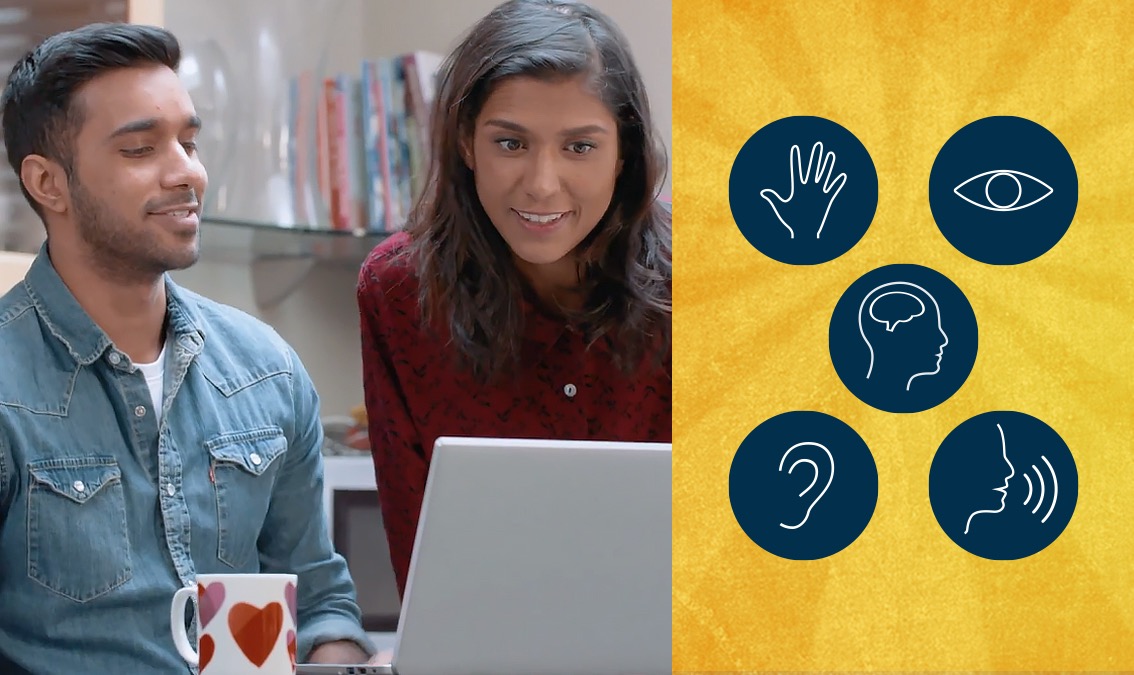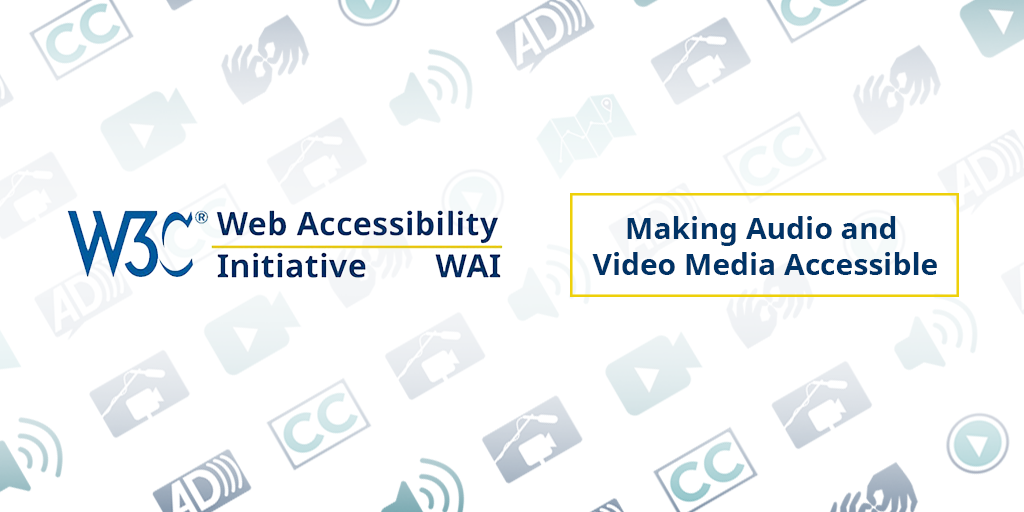Current Work
(updated monthly)
See What We're Working On – Accessibility Activities and Publications
Job Openings: Content Specialist, Technical Specialist
(2024-03-19)
W3C is seeking candidates from diverse backgrounds for two open positions in accessibility: 1. Accessibility Content Specialist for full-time remote work on accessibility materials. 2. Web Technical Specialist for full-time remote work in the USA on a project developing the technical infrastructure to support digital accessibility materials development and delivery. We welcome applications by 2 April 2024.
Call for Implementations: Digital Publishing Accessibility Candidate Recommendations
(2024-02-27)
Digital Publishing WAI-ARIA Module 1.1 (DPUB-ARIA) and Digital Publishing Accessibility API Mappings 1.1 (DPUB-AAM) are now Candidate Recommendation Snapshots. That means we’re seeking example implementations. These specifications help assistive technology users navigate through structural divisions in documents, for example, in ebooks. To learn more, see the e-mail announcement. Please submit implementations and any comments by 27 April 2024.
For Review: WAI-ARIA 1.3 First Public Working Draft
(2024-01-23)
Accessible Rich Internet Applications (WAI-ARIA) 1.3 Working Draft is available for review. WAI-ARIA provides an ontology of roles, states, and properties that define accessible user interface elements. These semantics allow authors to convey user interface behaviors and structural information to assistive technologies. Changes from ARIA 1.2 include: new roles (suggestion, comment, mark), new attributes (aria-description, aria-braillelabel, aria-brailleroledescription) and updates to aria-details to allow multiple IDREFS. Additional changes are in the changelog. Please submit any comments by 21 February 2024. For an introduction to WAI-ARIA and related resources, see the WAI-ARIA Overview.
WCAG 2.2 in Italian: Authorized Translation Published
(2023-12-05)
Linee guida per l'accessibilità dei contenuti Web (WCAG) 2.2, the Italian Authorized Translation of Web Content Accessibility Guidelines (WCAG) 2.2, is now available, following completion of the W3C Authorized Translations process. Other translations of WAI resources are listed in All WAI Translations. WAI encourages translations in all languages. If you might be interesting in translating resources, please see Translating WAI Resources. Thank you to all who contribute to translations.
Invitation: Evaluating Accessibility Symposium, Online, 16 November 2023
(2023-10-31)
You are invited to the symposium Evaluating Accessibility: Meeting Key Challenges, online 16 November 2023. Participation is free and registration is required by 13 November 2023. We encourage participation from researchers, academics, industry, government, and people with disabilities. Join us to explore practices and challenges monitoring and evaluating digital accessibility. The symposium will focus on: digital accessibility training, mobile accessibility, and artificial intelligence (AI). The link to register, the agenda, and more is in the symposium page.
Invitation: WAI-CooP Meeting, Online, 14 November 2023
(2023-10-30)
You are invited to the WAI-CooP Open Meeting, online 14 November 2023. Participation is free and registration is required by 13 November 2023. We encourage participation from people interested in: digital accessibility implementation in Europe and internationally; guidance on available web accessibility training, tools, and resources; and exchanges on the European Union (EU) Web Accessibility Directive (WAD). The link to register, the agenda, and more is in the
meeting page.
WCAG 2.2 is a Web Standard "W3C Recommendation"
(2023-10-05)
Web Content Accessibility Guidelines (WCAG) 2.2 is now a “W3C Recommendation” web standard. For an introduction to WCAG, see the WCAG 2 Overview. WCAG 2.2 adds 9 requirements (called success criteria) since WCAG 2.1. To learn more about WCAG 2.2, see What’s New in WCAG 2.2.
See All News Subscribe to WAI News

